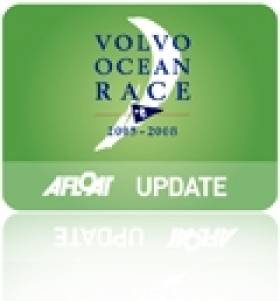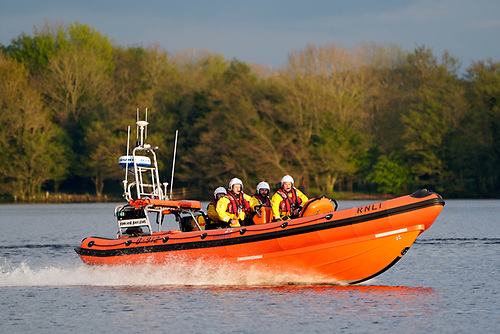Displaying items by tag: Pit Stop
#VOR - The Volvo Ocean Race fleet set off for Gothenburg from Lorient in perfect sailing conditions today (Tuesday 16 June) with Team Brunel (Bouwe Bekking/NED) leading the chase to reach the pit stop in The Hague.
There was drama from the very first seconds with Leg 8 winners Team SCA (Sam Davies/GBR) and Team Alvimedica (Charlie Enright/USA) both finding themselves on the wrong side of the line at the start and were forced back to cross for a second time.
Bouwe Bekking, in contrast, stormed away to the perfect start and was still narrowly ahead as he led the fleet out of a packed Lorient with all six boats in hot pursuit after five laps around the port.
Team Brunel, like three other boats, has a podium position to sail for in this final 960-nautical-mile leg to Sweden after more than eight months at sea, despite Abu Dhabi Ocean Racing (Ian Walker/GBR) already having the overall title virtually sewn up with an unassailable eight-point lead.
The Dutch boat is currently in second place on 27 points after eight legs, two clear of Dongfeng Race Team (Charles Caudrelier), and four ahead of MAPFRE (Iker Martínez/ESP).
All have the chance of finishing in second if the last leg results go their way, and even fifth-placed Team Alvimedica (Charlie Enright/USA) on 33 points could sneak in to grab the runners-up spot if they end up as leg winners and their rivals finish down the field.
Both Team SCA and Team Vestas Wind, first and second from Lisbon into Lorient last week, will be determined to put a spoke in all their wheels and repeat the previous stage’s somewhat surprising finish.
As Ian Walker put it, meanwhile, his tactics on board Abu Dhabi Ocean Racing are pretty simple on a stage which is full of exclusion zones, avoiding a busy shipping route skirted by rocks: “Don’t hit any rocks and avoid breaking any rules.”
Bekking would like nothing better than be first to reach The Hague in his home country, probably on Friday, a belated birthday present as he turns 52 years old tomorrow (17 June).
“We just have to beat them, it’s easy,” he said in an interview dockside before the action started at 5pm local time.
“We have no strategy as such but, of course, we’re going to keep an eye on the guys. It will be massive to go home [The Hague] but we know it’s just a stop and it’s all about the finish in Gothenburg.”
Another birthday boy, Iker Martínez onboard MAPFRE, who turns 38 today, said that the leg offers fairly unique challenges.
“There are lots of rocks involved, and our first priority is not to hit the rocks," he put it matter-of-factly.
“There’s going to be lot of current, but it’s difficult to know where the key of the leg is going to be. We could arrive in Scheveningen and then the whole thing starts again. The best thing is to be in front in any case.”
Charlie Enright of Team Alvimedica agreed, adding: “We are in a really complicated situation – but at least we know it’s complicated.”
The boats will be precisely timed as they pass the interim line in Scheveningen, near The Hague, on Friday 19 June. No points will be awarded for how they finish there.
From 12 noon local time onwards the following day, they will depart for Gothenburg with whatever advantage or deficit they took into the pit stop on their rivals. They are expected to arrive in Gothenburg on Monday 22 June 22 or possibly the following day.
The nine-month, 38,739-nautical-mile marathon event will finally come to a halt in the famous maritime Swedish city on Saturday 27 June with the Inmarsat In-Port Race Gothenburg.





























































